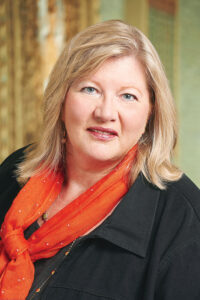If the photos I see on Facebook are accurate, it seems that most of my friends are travelling in Italy, walking the Camino de Santiago, or cruising to Alaska. It is also possible that my friends only post photos when they are engaged in travel activities that induce dreams of travel and adventure for those who remain at home.
The friends return home with tales of the sights, sounds, smells, and tastes of foreign lands. They occasionally also return with harrowing stories of unexpected dangers and misadventures. Inspired by some of these stories of incidents that could have been quite dangerous, I asked friends and family members who travel frequently how they plan and prepare to remain safe and secure as they travel in exotic locations.
When I asked these travel gurus about the most important measures to take as they travel, quite a number of them said that the worst thing they had experienced on their travels was having their passport stolen or destroyed. The complications of having passports replaced are significant and are certainly one of the main reasons that travellers visit Canadian embassies in countries around the world.
Of course, the best thing to do is keep your passport safe while you travel. For most people this means keeping the passport in a safe location on their person while in transit. Most of the men I spoke with talked about secure pockets in shirts or cargo pants that they used to carry their passports. Women have special passport security belts, well-designed security travel pouches, or even infinity scarves with secret storage compartments that are used to store the passport and a basic amount of cash in case a purse or travel bag with the wallet is stolen.
People who like to keep passports or valuables in a purse are advised to be very careful with their purses and be aware that the purse can be a frequent target for thieves. Hanging a purse on the back of a chair in a restaurant or coffee shop is one of the frequent ways of making a purse accessible to thieves. Most travellers advised making photocopies of the key identification pages of the passport and leaving a copy at home with family members or friends. It is also wise to put a copy in some other location in your luggage and keeping a photo of those pages on your cell phone as well.
One frequent traveller recommends looking at the Travel Advice and Advisories section of the Canada.ca web site. This resource has listings of travel destinations and provides specific advice on the travel safety levels and types of difficulties that might be encountered in international destinations. Everything from natural disasters to kidnapping are outlined. Even if you have travelled to an area frequently, it can be well worth your time to double check on the current advisory status of that country. There can be political, social, economic, or public health issues that may have changed in that country since your last visit.
The Government of Canada also provides a free service that allows Canadians who will be travelling or residing abroad to register for information notifications to be sent to them. If there are emergencies in the country in which you are travelling or major issues at home, you would be sent a notification. This seems to be a very wise addition to your travel planning process. For information on this service, look at Registration of Canadians Abroad - Travel.gc.ca
Apparently virtual kidnappings have become a regular occurrence in travel destinations such as Mexico. If family members are contacted to pay ransom related to a kidnapping, the family members are advised to contact the Canadian embassy in the country for advice before making payments. Checking the travel advisories for countries you are considering visiting and registering your visit abroad seems a very wise and safety conscious approach.
Keeping in touch with friends and family members as you travel and ensuring that some people at home are aware of your travel itinerary is an important part of your safety planning process. If you are feeling unsafe in any situation, send a note to a trusted family member or friend, or send a location pin to identify your location even if you are in a taxi. This can be helpful if assistance is needed.
One family member who has travelled extensively in challenging countries and areas of the world says that a big part of remaining safe is developing a type of walk and demeanor that indicates to people in your environment that you would not be an easy target for crime. He says it is not a question of being overly assertive or menacing. It is a question of moving through the environment without encroaching on other people’s space, moving decisively and confidently without drawing attention to oneself. This may be more complicated than it seems and somewhat difficult to practice, but apparently once one has mastered this skill, it makes all the difference in the world.
We know that there are many joys and discoveries related to travelling, and we know that most of the people we meet around the world are not a danger to tourists. However, there are enough travel misadventures that occur to Canadians that it is well worth the time to take basic precautions and remain vigilant and aware of potential dangers as we explore the world.
Trudy Schroeder is the former CEO of the Winnipeg Symphony Orchestra and twice ran for the provincial NDP.



